Are you sure you want to leave RDJ's MyShop site?
Are you sure you want to leave RDJ's MyShop site?
Are you sure you want to leave RDJ's MyShop site?
Are you sure you want to leave RDJ's MyShop site?

Did you know your body takes around 17,000 to 30,000 breaths each day? Well, take a deep breath and get ready to learn how your respiratory system works and how to keep your lungs healthy.
Life begins outside the womb with your first breath. Breathing is a natural biological function. It is a vital process in which your lungs bring oxygen from the air into your body and expel carbon dioxide produced by your cells. This process keeps you alive.
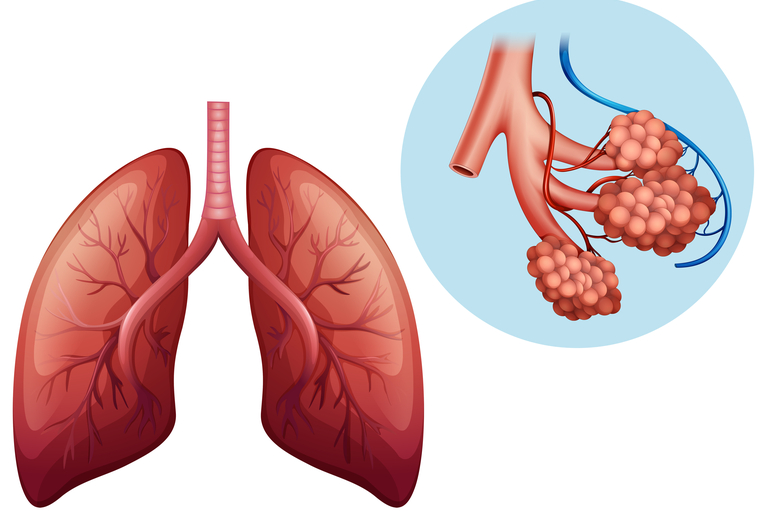
The first phase of breathing is called inhalation or inspiration. Air enters your body through your nose and mouth, travels down the back of your throat into your windpipe (trachea), and makes its way through your bronchi, large tubes that connect to your trachea and direct the air you breathe into your lungs. The oxygen in the air you breathe is then transferred from your lungs into your bloodstream.1
How do we get the oxygen from our lungs to our bloodstream?
Your lungs are fascinating. Under a microscope, the inside of your lungs looks like a giant sponge. The bronchi branch into tiny tubes called bronchioles, which are the size of one single hair strand. At the end of these tubes are tiny air sacs called alveoli.2
Did you know that your body has about 600 million alveoli and each one is surrounded by a mesh-like covering of tiny blood vessels called capillaries? Oxygen travels from your alveoli into these capillaries and then enters your bloodstream where it can be carried to every cell in your body.3
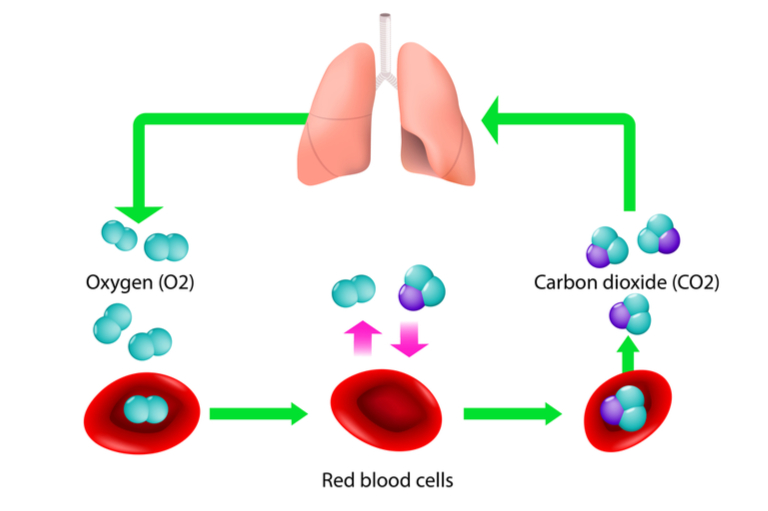
The second phase of breathing is called exhalation or expiration. The purpose of expiration is to remove carbon dioxide, a waste product your body forms during energy production. Carbon dioxide follows the same path as oxygen, but it moves in the opposite direction. Carbon dioxide travels through your bloodstream into your pulmonary capillaries, then makes its way into your alveoli, bronchi, trachea, and gets expelled through your nose and mouth.

Despite not being fully exposed to the environment (like your skin), your lungs have some contact with the outside world.
Your respiratory system has several mechanisms in place to protect your lungs.5 For example, tiny hairs (called cilia) that line your respiratory tract help filter out dust and other particles that enter through your nose. Additionally, the mucus in your lungs catches and holds dust, germs, and other potentially harmful substances that have entered your lungs.6 There are also things you can do to promote the health of your lungs.
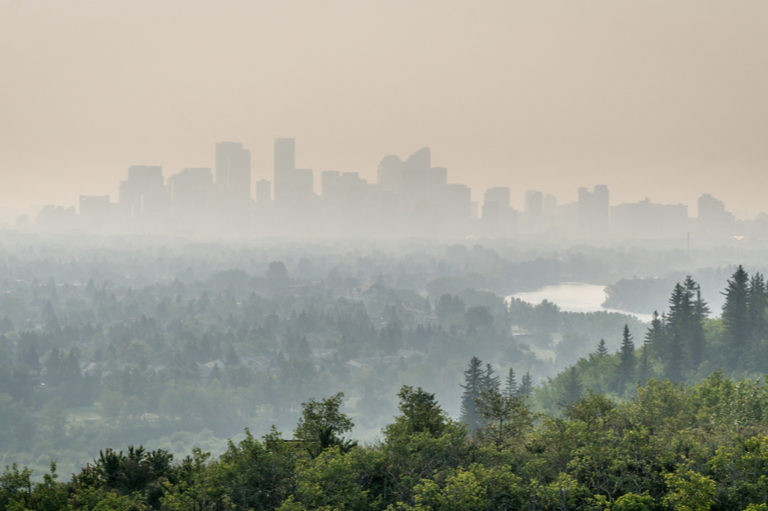
According to Air quality analysis and statistics for India by IQAir, In 2019, as part of a worldwide survey, it was discovered that 21 out of the 30 most polluted cities were in India.
In the most recent State of the Air report released by the ALA, emissions from transportation, power plants, and manufacturing as well as a changing climate are said to be responsible for poor air quality.7 The report looked at two of the most widespread and dangerous air pollutants: ozone and fine particulate matter. Researchers state that while ozone pollution is improving, pollution from fine particulate matter is getting worse. Environmental factors, such as extreme heat and wildfires, are causing short-term spikes in particle pollution in many areas and are challenging efforts to keep the air clean.7
Both short- and long-term exposure to poor air quality can be detrimental to your health.8 Short-term effects are temporary and include irritation of the eyes, nose, and throat; breathing difficulties. Long-term effects are typically more serious as they involve damage to your cells and body systems (especially your lungs).
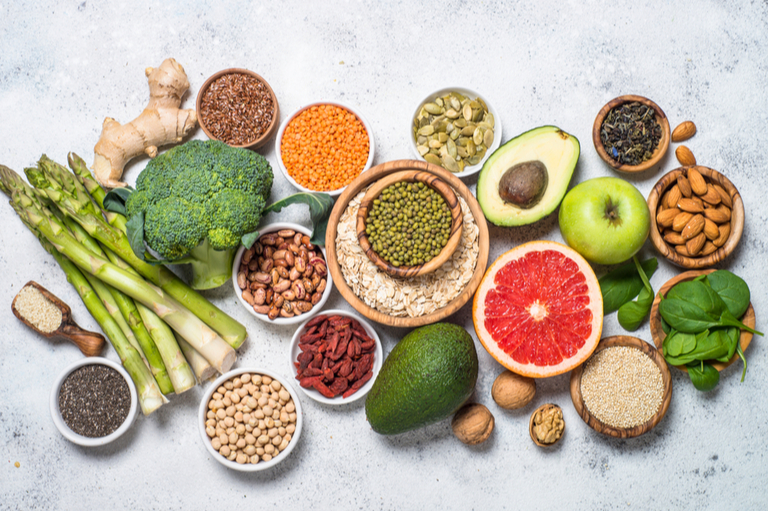
Your airway has natural defenses that can protect against pollution-based damage. However, increased exposure to pollutants can overwhelm your defense system and lead to oxidative stress in your respiratory system.9 Oxidative stress is linked to cell damage and is caused by an imbalance between free radicals and antioxidant defenses. If left unmanaged, cell damage can disrupt the normal functioning of your respiratory system and eventually interfere with your health.
Avoiding air pollution is the best way to protect your lung health. Unfortunately, this is not always feasible so finding other means of protection is important. As has been noted, eating a healthy diet, specifically one that is rich in fruits and vegetables, is one way to support lung health. Research has shown that certain natural compounds found in foods may help promote lung health by:
1. Removing potentially harmful particles from your respiratory system
2. Protecting against damage when harmful particles enter your lungs
3. Supporting lung tissue and breathing function
These compounds are also found in dietary supplements, which can be used alongside a healthy diet to help optimize respiratory function.
Protecting the health of your lungs is an important part of maintaining your wellbeing. Support your lungs and overall respiratory function by adopting the healthy lifestyle practices discussed in this article and avoiding exposure to air pollution whenever possible.
4Life Transfer Factor® Lung offers high-quality ingredients to support your lung health, respiratory function, and your body’s natural defenses against pollution-based damage.*
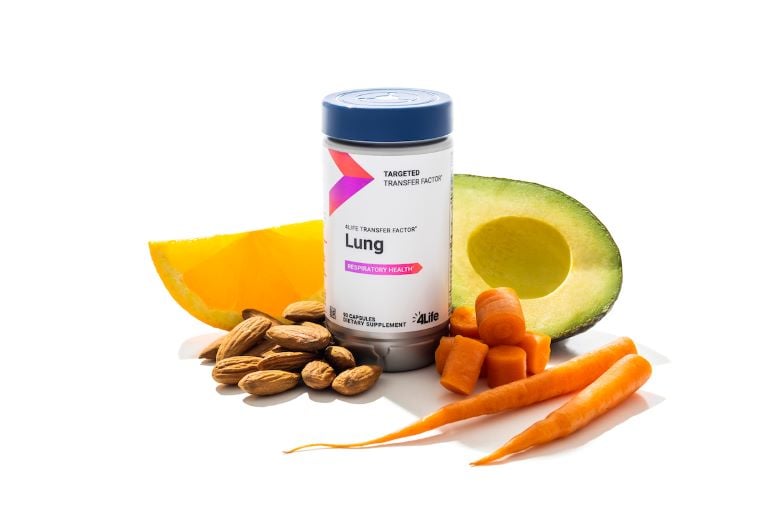
You are trying to view a MyShop page. Please log out in order to view this website.